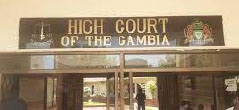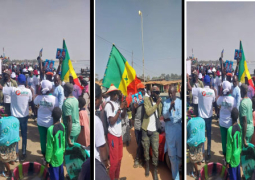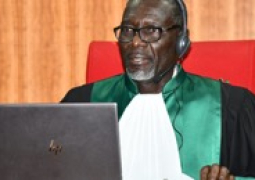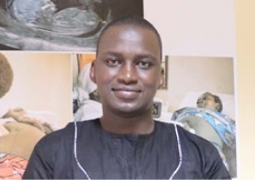
The argument broke when the state applied to admit as evidence the cautionary and voluntary statements of the 5th accused, after already admitting those of Sanna Fadera and Ebrima Sannoh without any objection from the defence.
The accused persons are facing charges of treason, concealment of treason and incite to mutiny.
They are Lance Corporal Sanna Fadera, Sergeant Gibril Darboe, Corporal Ebrima Sannoh and Corporal Omar Njie of the Gambia Armed Forces, as well as Sub-inspector Fabakary Jawara of the Gambia Police Force.
The clash between the defence and state occurred on Monday during the testimony of Police SuperintendentSanussi Darboe as state witness.
Mr. Darboe was member of the joint panel that was setup to investigate the alleged coup plot.
The defence objected to the admissibility of Fabakary Jawara’s statements into evidence, arguing the manner in which the statements were obtained is not in line with section 31 subsection 2 of the country’s Evidence Act.
“Both cautionary and voluntary statements of 5th accused are not admissible with regard to the circumstances under which they were taken and vis-à-vis the law,” Senior Defence Counsel L.S. Camara told the court.
“Both the cautionary and voluntary statements appear to be confessions to some extent and the law – the Evidence Act – has clearly stated that in obtaining any statement that has a confession, certain guidelines must be followed,” he explained, further saying that the “permission of the court I refer you to section 31 subsection 2.”
Subsection 2 of section 31 under Chapter 5 of the Evidence Act, from which the counsel cited, states: “A confession shall not be admissible if the statement was made by an accused while under arrest, in detention or restricted by state agents unless the confession was made in writing by the accused or someone on his or her behalf and signed or thumb printed by the accused in the presence of an independent witness, the witness not being a member of the Police, Army or Security Forces.”
Counsel L.S. Camara said that “there must be an independent witness present.”
“The independent witness was not present when the statements of Fabakary Jawara were being taken,” he maintained, positing that there is a rationale for having this provision in Evidence Act.
It is meant for the protection of the right and liberty of the accused, the counsel explained.
State Counsel A.M. Yusuf countered that the statement was written by the accused person in his own handwriting and not on his behalf by someone else. He said it is therefore admissible.
“On the second objection that Fabakary was beaten by one Captain Kandeh [or so], it is our submission that the cautionary statement of Fabakary was obtained voluntarily under freewill and not under duress,” Counsel Yusuf said.
He said that there is no counter evidence whatsoever that has contradicted the evidence of the witness Sanussi Darboe that the statements were obtained voluntarily.
LS Camara clarifies that the language of section 31 subsection 2 is very clear as to who might have written a statement. “It doesn't matter whether it was written by the witness or written on his behalf by another, signed and thumb-printed,” he posited.
At this stage, the hearing was eventually adjourned for ruling and continuation of testimony.
Giving his ruling yesterday, presiding judge, Justice Bassirou Mahoney, defined confession, per the Evidence Act, a voluntary admission made at any time by a person charged with an offence, stating or suggesting the inference that he or she committed that offence.
Further, he also cited section 2 of section 31 as previously cited by defence lawyer L.S.Camara, which he said is quite clear that a statement (s) cannot be admitted into evidence if it was written by the accused or on his behalf without the presence of an independent witness.
He also considered the section objected to by lawyer L.S. Camara that the statement was written involuntarily and under duress, but he puts more emphasis on the first main objection, which he said has invalidated the admissibility of the documents into evidence.
"The statements are therefore inadmissible," Justice Mahoney ruled, reasoning that there was no independent witness present.
The statement continues today at 2 pm.
Read Other Articles In Headlines

PASTEF holds rally at Gunjur Beach ahead of Senegal presidential elections
Mar 19, 2024, 11:15 AM




